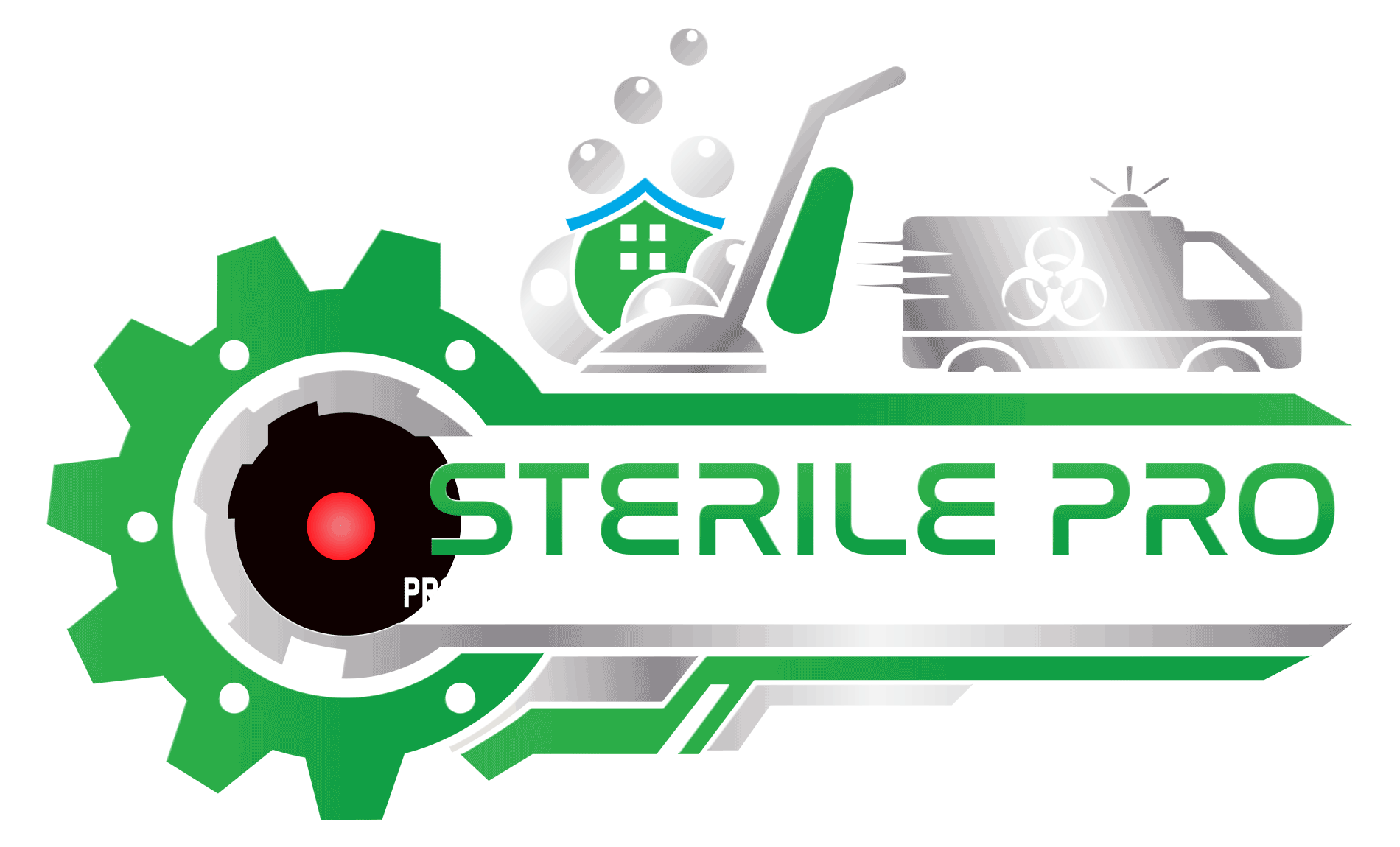Sanitation Franchise Business Success: Innovative Approaches for 2024 and Beyond

The sanitation franchise business is poised for significant growth and transformation in 2024 and beyond. As global awareness of hygiene and cleanliness standards continues to rise, the demand for professional sanitation services is escalating. This burgeoning market offers a lucrative opportunity for entrepreneurs looking to invest in a sanitation franchise business. However, success in this competitive field requires more than just traditional cleaning methods. Innovative approaches, including the integration of advanced technologies, eco-friendly practices, and comprehensive training programs, are essential to stand out and thrive.
One of the most impactful innovations in the sanitation franchise business is the adoption of cutting-edge technologies. These include automated cleaning robots, Internet of Things (IoT) devices, and advanced disinfection solutions such as electrostatic sprayers and UV-C light technology. These tools not only enhance efficiency and effectiveness but also provide a competitive edge by offering clients the assurance of superior cleanliness. The ability to monitor and manage cleaning operations remotely through IoT devices also ensures consistent service quality and quick response times, thereby increasing customer satisfaction.
In addition to technological advancements, the emphasis on sustainability is reshaping the sanitation franchise landscape. Consumers and businesses alike are increasingly prioritizing environmentally friendly practices. Franchisees who adopt green cleaning products, implement waste reduction strategies, and promote sustainable practices can attract a growing segment of eco-conscious clients. Moreover, adhering to these practices often results in cost savings and operational efficiencies, further boosting profitability.
Comprehensive training programs are another crucial element for success in the sanitation franchise business. Franchisees need to be equipped with the latest knowledge and skills to effectively utilize new technologies and adhere to industry best practices. Continuous education and training ensure that staff can maintain high standards of service and adapt to evolving client needs and regulatory requirements.
In conclusion, the sanitation franchise business is entering a new era of innovation and growth. By embracing advanced technologies, committing to sustainability, and investing in ongoing training, franchisees can position themselves for long-term success in this dynamic and essential market.
The Role of Advanced Technology in sanitation franchise business
The integration of advanced technology in sanitation franchise business is revolutionizing the industry. Technologies like automated cleaning robots, IoT devices, and advanced disinfection tools such as electrostatic sprayers and UV-C light are becoming essential components of modern sanitation services. Automated cleaning robots can efficiently clean large spaces, ensuring thorough coverage and consistent quality. These robots are equipped with sensors and AI, allowing them to navigate and clean autonomously, reducing the need for manual labor and increasing efficiency.
IoT devices play a crucial role in monitoring and managing cleaning operations remotely. These devices can track real-time data on various parameters such as air quality, humidity, and cleanliness levels. This data-driven approach enables franchisees to maintain high standards of hygiene and respond promptly to any issues.
Benefits of Electrostatic Sprayers and UV-C Light Technology
Electrostatic sprayers and UV-C light technology are at the forefront of innovative disinfection methods. Electrostatic sprayers work by charging cleaning solutions with a positive electrical charge, allowing the droplets to adhere more effectively to surfaces. This ensures that even hard-to-reach areas are thoroughly disinfected, providing a higher level of cleanliness compared to traditional methods. UV-C light technology, on the other hand, uses ultraviolet light to kill or inactivate microorganisms such as bacteria, viruses, and fungi. This method is particularly effective in high-touch areas and can significantly reduce the risk of infection.
These advanced disinfection technologies not only enhance the effectiveness of cleaning processes but also provide a marketing advantage. Clients are increasingly looking for assurance that their spaces are being cleaned using the latest and most effective methods. By incorporating these technologies, sanitation franchises can offer a superior service, thereby attracting and retaining more clients.
Sustainability as a Core Value
Sustainability is becoming a core value in the sanitation franchise industry. As awareness of environmental issues grows, consumers and businesses are seeking out services that align with their values. sanitation franchise business that adopt eco-friendly practices can differentiate themselves in the market and appeal to a broader customer base. Using green cleaning products that are non-toxic and biodegradable is a key aspect of sustainable cleaning. These products not only reduce the environmental impact but also ensure the safety of cleaning staff and building occupants.
Implementing waste reduction strategies is another important element of sustainability. This can include practices such as recycling, composting, and minimizing the use of single-use plastics. By reducing waste, sanitation franchises can lower their operational costs and contribute to environmental conservation. Promoting these practices through marketing and communication efforts can also enhance the franchise’s reputation and attract eco-conscious clients.
Comprehensive Training Programs for Staff
Investing in comprehensive training programs for staff is essential for the success of sanitation franchises. As new technologies and methods are introduced, it is crucial that staff is adequately trained to use them effectively. Training programs should cover the proper use of equipment, the application of cleaning products, and adherence to safety protocols. This ensures that staff can deliver high-quality services consistently and safely.
Ongoing education and training are also important to keep up with industry developments and regulatory changes. Regular training sessions can help staff stay informed about the latest best practices and innovations in the field. Additionally, offering opportunities for professional development can boost staff morale and retention, as employees feel valued and supported in their roles.
Enhancing Customer Experience through Personalized Services
Providing personalized services is a key strategy for enhancing customer experience in the sanitation franchise industry. Understanding the unique needs and preferences of each client allows franchisees to tailor their services accordingly. This can involve customizing cleaning schedules, using specific products requested by clients, and providing detailed reports on cleaning activities.
Effective communication is crucial for delivering personalized services. Regular check-ins and feedback sessions with clients can help identify areas for improvement and ensure that their expectations are being met. By fostering strong relationships with clients, sanitation franchises can build trust and loyalty, leading to long-term partnerships and positive word-of-mouth referrals.
Leveraging Digital Marketing for Business Growth
Digital marketing is an essential tool for growing a sanitation franchise business. An effective online presence can help attract new clients and retain existing ones. A well-designed website that highlights the franchise’s services, technology, and sustainability practices can serve as a powerful marketing asset. Additionally, utilizing search engine optimization (SEO) strategies can improve the franchise’s visibility in online searches, making it easier for potential clients to find the business.
Social media platforms offer another valuable marketing channel. Engaging content that showcases the franchise’s expertise, success stories, and client testimonials can help build brand awareness and credibility. Social media also provides opportunities for direct interaction with clients, allowing for immediate responses to inquiries and feedback. Paid advertising campaigns on platforms like Google and Facebook can further amplify marketing efforts and reach a larger audience.
Building a Strong Brand Identity
Building a strong brand identity is crucial for standing out in the competitive sanitation franchise industry. A clear and consistent brand message that communicates the franchise’s values, mission, and unique selling points can help attract and retain clients. This includes branding elements such as logos, color schemes, and taglines, as well as the overall tone and style of communication.
Brand identity extends beyond visual elements to encompass the entire customer experience. Every interaction with the franchise, from initial inquiries to service delivery, should reflect the brand’s commitment to quality and customer satisfaction. Consistency in branding helps build trust and recognition, making it easier for clients to choose the franchise over competitors.
Expanding Service Offerings to Meet Market Demands
Expanding service offerings is a strategic approach to meeting evolving market demands and increasing revenue. Sanitation franchises can diversify their services by offering specialized cleaning for different sectors such as healthcare, hospitality, and education. Each sector has unique requirements and standards, and providing tailored services can help franchisees capture new market segments.
Additional services such as emergency response cleaning, deep cleaning, and preventive maintenance can also enhance the franchise’s value proposition. By offering a comprehensive range of services, franchises can position themselves as one-stop solutions for all sanitation needs. This not only attracts a wider client base but also increases opportunities for cross-selling and upselling.
Importance of Adapting to Regulatory Changes
Staying abreast of regulatory changes is vital for the success of sanitation franchises. The cleaning industry is subject to various regulations and standards, particularly concerning health and safety. Compliance with these regulations is not only a legal requirement but also a crucial aspect of maintaining service quality and client trust.
Franchisees should regularly review and update their policies and procedures to ensure compliance with the latest regulations. This includes staying informed about changes in health guidelines, environmental standards, and labor laws. Proactive adaptation to regulatory changes can prevent potential issues and position the franchise as a responsible and reliable service provider.
The Power of Networking and Partnerships
Networking and partnerships can significantly contribute to the growth and success of a sanitation franchise business. Building relationships with industry peers, suppliers, and professional organizations can provide valuable insights and opportunities. Networking events, trade shows, and industry conferences offer platforms for sharing knowledge, discovering new trends, and forming strategic alliances.
Partnerships with suppliers can lead to better pricing and access to advanced products and technologies. Collaborations with other businesses, such as property management companies and facility maintenance providers, can create referral opportunities and expand the franchise’s client base. By leveraging networking and partnerships, franchisees can enhance their competitive edge and drive business growth.
Conclusion
In conclusion, the sanitation franchise industry is experiencing a dynamic transformation driven by technological advancements, sustainability practices, and comprehensive training. Embracing innovative approaches such as automated cleaning robots, IoT devices, and advanced disinfection technologies can significantly enhance service quality and efficiency. Sustainability initiatives, including the use of green cleaning products and waste reduction strategies, align with growing consumer preferences and contribute to long-term success.
Investing in staff training, enhancing customer experience through personalized services, and leveraging digital marketing are essential strategies for building a successful sanitation franchise. Expanding service offerings, adapting to regulatory changes, and fostering networking and partnerships further strengthen the franchise’s market position.
By focusing on these innovative approaches and adapting to the evolving landscape, sanitation franchises can achieve sustained growth and success in 2024 and beyond. Entrepreneurs entering this market have the opportunity to make a meaningful impact on public health and hygiene while building a profitable and resilient business.
“For more information please click on this link“



